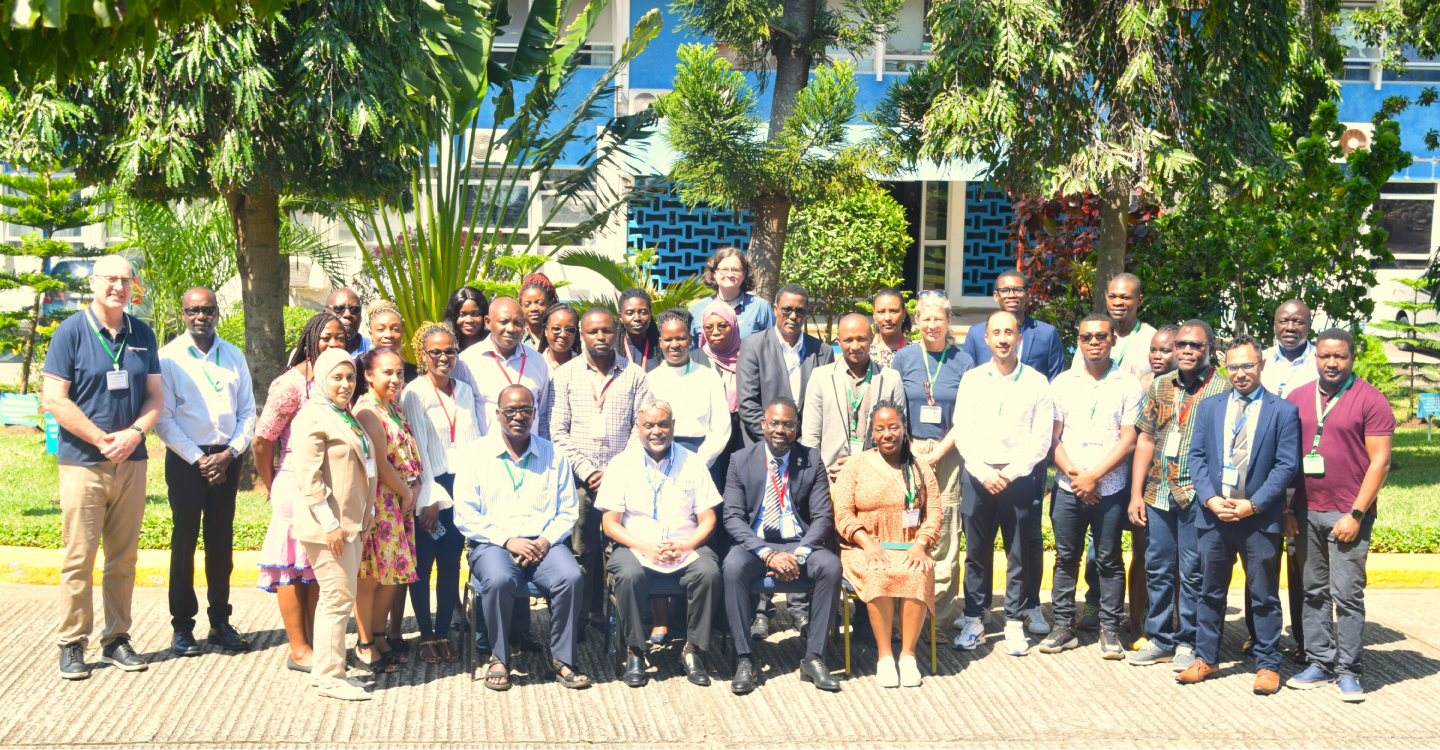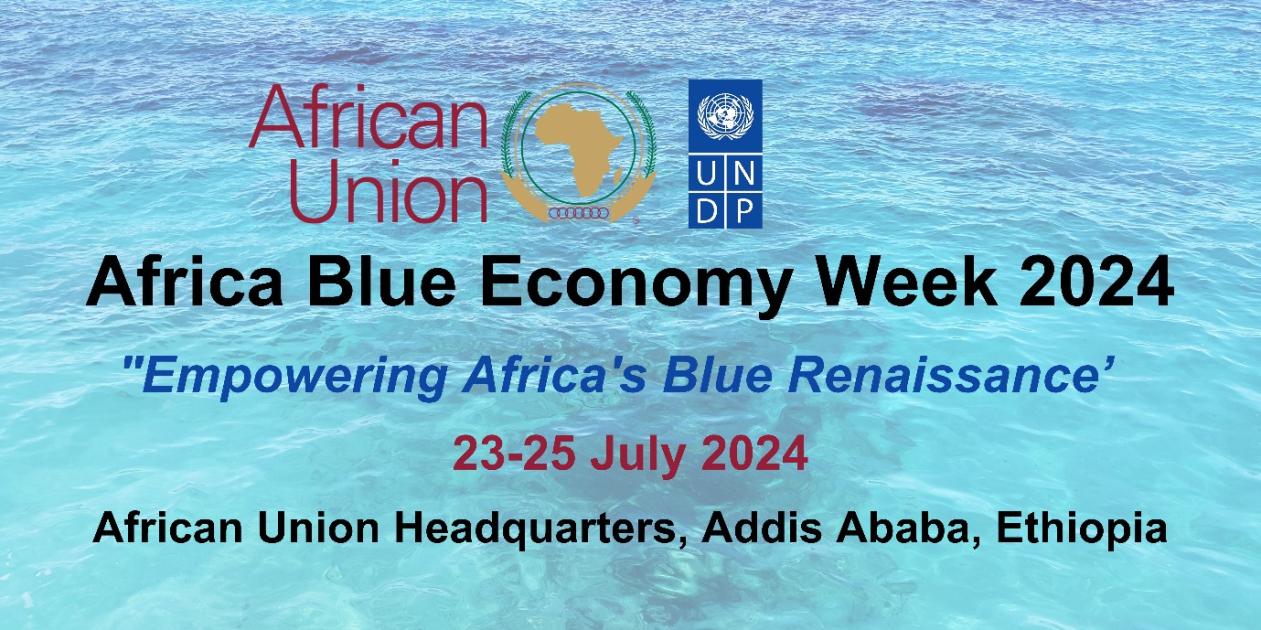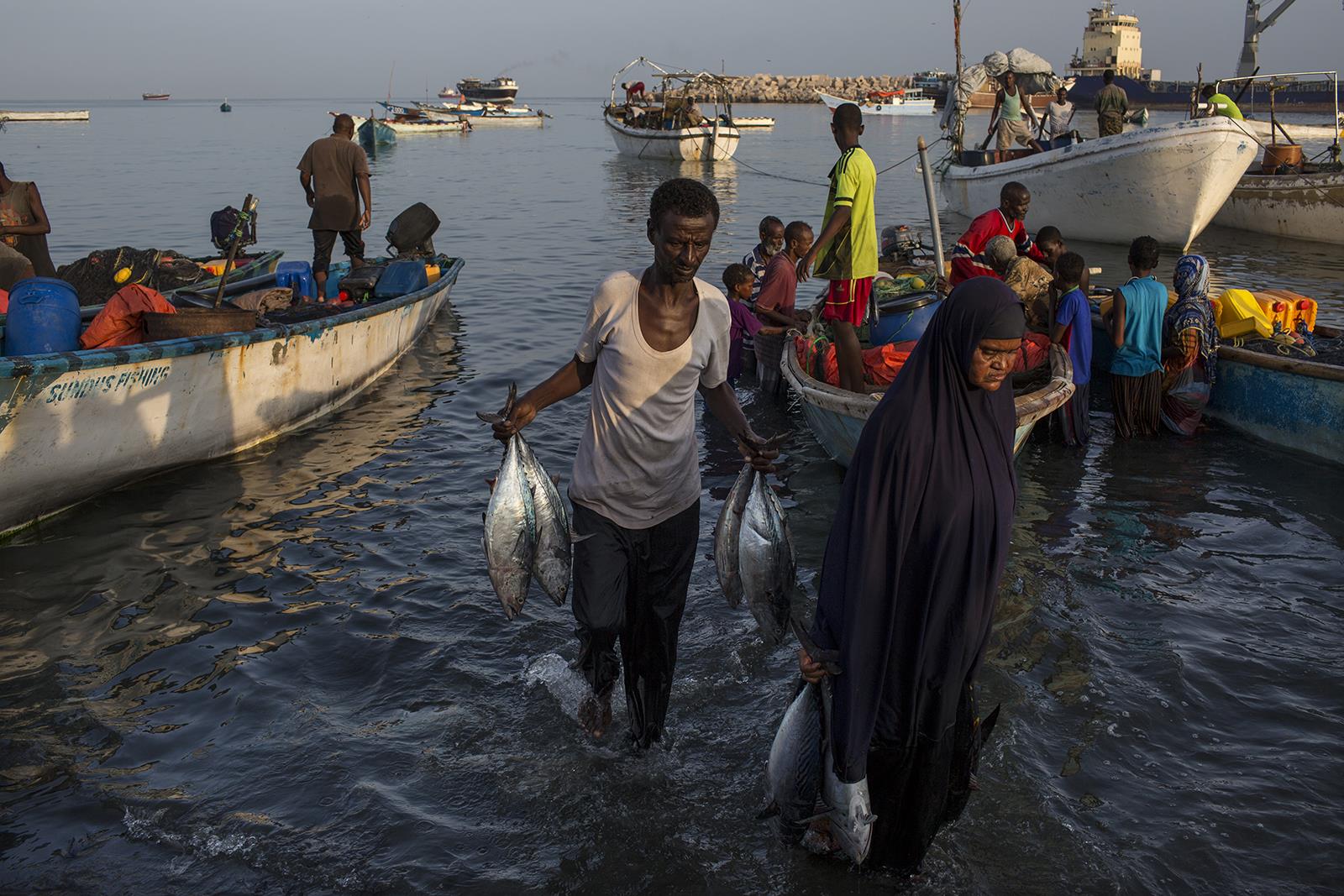Debating Ideas reflects the values and editorial ethos of the African Arguments book series, publishing engaged, often radical, scholarly, original and activist writing from within the African continent and beyond. It offers debates and engagements, contexts and controversies, and reviews and responses flowing from the African Arguments books. It is edited and managed by the International African Institute, hosted at SOAS University of London, the owners of the book series of the same name.
Water defines communities, eras and livelihoods. It means different things to different people. To some, it holds ancestral and traditional values, for others it symbolises superstition or fear, and for some others still, it embodies lifestyles and supports livelihoods. Thirty-two of fifty-five member states of the African Union are coastal states and another six are islands or archipelagos. This means that about one-third of African countries are landlocked and must rely on their coastal neighbours for much of their imports. The continent only represents 7 per cent and 5 per cent respectively of maritime exports and imports by volume in a world in which 90 per cent of global international trade is sea-borne.
Africa is host to a vast body of Blue Economy resources. Africa’s coastal and island states include an estimated 13 million km² of ocean territory. The continent includes over 30,000 km of coastline and over 1.5 million km2 of Exclusive Economic Zones (EEZs). Africa also boasts an extensive network of inland freshwater sources, including seven major rivers (over 2,000 km long), lakes and wetlands, spanning all five of the continent’s regional economic mechanisms in Central, East, North, Southern and West Africa.
The relationship of Africa’s peoples to the continent’s waters has not always been harmonious. Many of these sources of water provided channels through which Africans were transported into slavery overseas throughout the 17th century. Many perished. European contests over the control of Africa’s waters subsequently framed the Scramble for Africa in the late 19th century. The General Act, adopted at the end of the Berlin Conference which partitioned the continent in February 1885, acknowledged that its goal was “to assure to all nations the advantages of free navigation on the two chief rivers of Africa flowing into the Atlantic Ocean.”
Unsurprisingly, the erasure of African history has, incredibly, also been indexed to water. Thus, in schools across the continent, children are taught how different Europeans “discovered” different bodies of water in Africa, from West Africa’s River Niger to Southern Africa’s Victoria Falls. Today, many of these sources of water and the livelihoods built around them are under multi-dimensional threat from pillage, pollution, and piracy. The consequences are evident.
It is estimated that 80 per cent of the population of the archipelago of São Tomé and Príncipe is afraid of the Ocean and cannot swim. In West and Central Africa, the myth of Mami Wata (“mother water” in Pidgin English) who represents both the positive benefits – transport, trade, wealth and fish – and the negative associations – floods and drownings – of rivers and lakes also contributes to the fear of large water spaces. On the other hand and in a strange turn of fate, the Atlantic Ocean and Mediterranean Sea are once again sources of trafficking of Africans as thousands of impoverished fishers who are victims of illegal fishing and crime at sea, and unemployed youths around the continent trundle away for greener pasture despite the risks and frequent deaths.
In this context, it may seem difficult to find cause to celebrate or commemorate the African Day of Seas and Oceans.
Yet, that is exactly what the world will and should be doing on 25 July, designated by the African Union (AU) since 2015 as the day to raise awareness of the continent’s enormous water challenges and the need to sustainably harness its rich marine resources and biodiversity. Nine years later, the AU itself is only just beginning to scratch the surface with various blue economy initiatives, thanks to the adoption of the Africa Blue Economy Strategy (ABES) in implementation of the recommendations of the Blue Economy Summit held in Nairobi in 2018.
The AU is not alone in seeking to promote a blue economy in Africa. Many multilateral institutions appear eager to promote sustainable marine economies on the continent. Proposed initiatives of relevance here include the United Nations Decade of Ocean Science for sustainable development (UN Decade of Ocean Vision 2030) and its Africa Roadmap; the Third United Nations Ocean Conference to be held in Nice, France in June 2025; as well the forthcoming (2025) review of the Sustainable Development Goals (SDGs).
Like the AU’s ABES and its Action Plan for 2021–2025, these initiatives have gone almost unnoticed to most Africans, not least due to a perceived or real technicality of the issues and a seemingly entre-soi attitude that makes water affairs at the maritime or riparian levels appear to be the exclusive preserve of a narrow intellectual or security sector elite.
Where African maritime and marine sectors have been at the forefront of news cycles over the past two or so decades, it has essentially been for negative reasons such as piracy off the coasts of Somalia and the Gulf of Guinea, or other forms of sea-based criminality and illegal fishing by foreign countries and companies. As necessary and essential as combating these scourges may be, Africa now needs to look at more constructive strategies to sustainably utilise its marine resources and address its water challenges. This requires a shift in narrative and action.
Water spaces as the last frontier for African development and economic growth matter in the global sustainability project. At the heart of this are the needs of future generations. For this to happen in the water sector, at least three things must occur.
First, multi-stakeholder partnerships are required, involving government, private investors, non-governmental actors, communities and internationals to promote holistic approaches to the development of Africa’s blue economies to ensure awareness and understanding of the importance of water ecosystems and spaces in the lives of all around the continent. This must emphasise the participation of everyone in the preservation, protection and sustainable uses of water resources and spaces for the betterment of riverine and coastal communities, countries, and the continent at large.
Second, historical miseducation concerning Africa’s water resources must end. Mungo Park did not “discover” the River Niger, nor did David Livingstone “discover” the Victoria Falls. These were local water resources already in use by the local communities. The narrative of expropriation of Africa’s water resources foregrounded the appropriation of those resources subsequently by foreign interests, many of whom have gone on subsequently to toxify or pollute them through irresponsible exploitation that continues to endanger local communities.
Third, these acts of actual or constructive expropriation have fed alienation of local communities, leading to a deepening of pathologies of maritime insecurity across the continent. To end these, maritime security initiatives require both to be owned by African countries and also to involve local communities.
Finally, growth that is impactful and translates into the promised empowerment of African peoples, particularly youth and women, depends on the transformative exploitation of the continent’s marine, mining and agricultural resources; on improving road, rail, fluvial and port infrastructure and transports for efficient intra-African trade; and ensuring the training of an African expertise that can effectively understand and apply local knowledges, cultures, and contexts, because our waters are the gateways to our jobs and sovereignty.
Africa as a continent cannot afford to promise development to the next generations without the latter’s full participation and involvement from the design stage, and for the fullest benefit of peoples and communities. If current generations have not been raised to understand, protect, and sustainably utilise marine and inland water spaces and resources, all actors in society now must engage in acquisition and transmission of knowledge about oceans, seas, rivers, and lakes.



